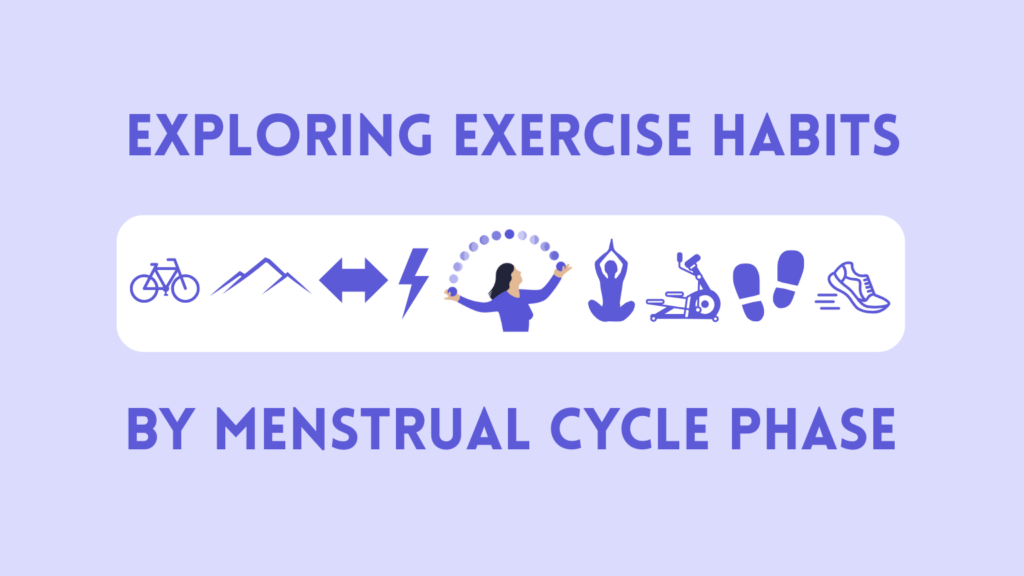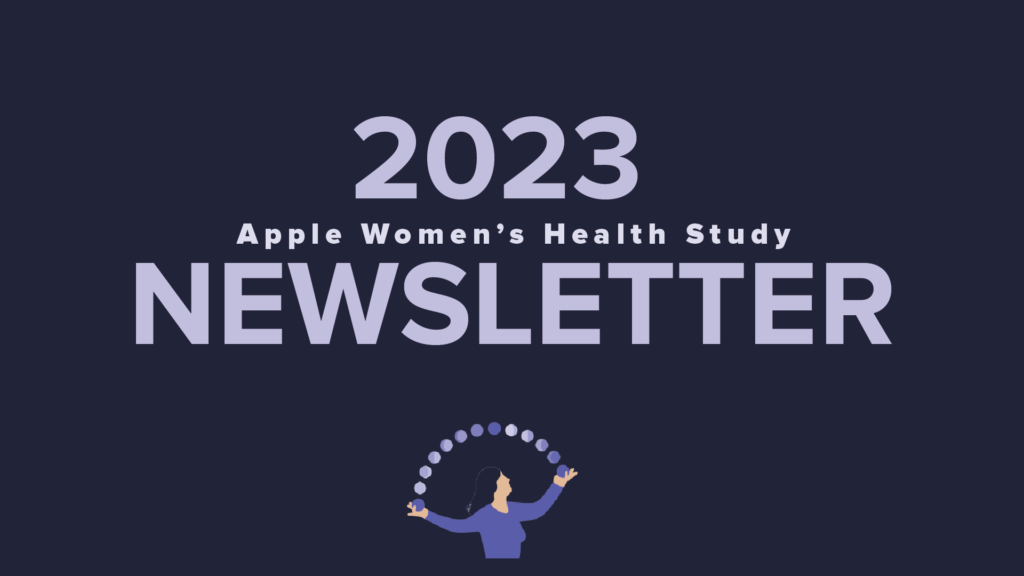Apple Women’s Health Study
The Apple Women’s Health Study is the first long-term research study of this scale and scope that aims to advance the understanding of menstrual cycles and their relationship to various health conditions.
Study Updates

Exploring exercise habits by menstrual cycle phase
May 2025: Researchers are studying patterns of exercise minutes and step count on bleeding vs. non-bleeding days for participants in the Apple Women’s Health Study.

2024 Newsletter: Celebrating Five Years of the Apple Women’s Health Study
February 2025: The Apple Women’s Health Study (AWHS) leadership team would like to extend their heartfelt thanks to you, our participants.

Understanding exercise patterns and heart rate throughout pregnancy
June 2024: The Apple Women’s Health Study explored the changes in exercise and heart rate during and after pregnancy.

2023 Apple Women’s Health Study newsletter: four years in review
December 2023: The Apple Women’s Health Study shared its first newsletter with participants that encompasses achievements from the past four years.

World Diabetes Day: glucose response to activity and the menstrual cycle
November 2023: The Apple Women’s Health Study teamed up with the Apple Heart and Movement Study to evaluate the effects of physical activity and the menstrual cycle on glucose.

Menstrual cycle length and variability: a visual explanation
September 2023: The Apple Women’s Health Study is helping us characterize menstrual cycles throughout people’s lives. In this visual series, we aim to help you understand two key concepts at the heart of the study, cycle length and variability, and how they vary between participants of the study.

Connecting the dots between irregular periods, polycystic ovary syndrome and endometrial cancer risk.
September 2023: Apple Women’s Health Study researchers studied the relationship between polycystic ovarian syndrome (PCOS) and time to cycle irregularity with endometrial cancer and hyperplasia.

Menstrual hygiene products: pads and tampons are the go-to choice
May 2023: In celebration of this year’s Menstrual Hygiene Day, the Apple Women’s Health Study explored what are the most commonly used menstrual hygiene products.

Menstrual cycles today: how menstrual cycles vary by age, weight, race, and ethnicity
November 2022: Thanks to participants in the Apple Women’s Health Study, we were able to look at over 165,000 menstrual cycles and explore the potential differences in menstrual cycle length and variability by age, weight race, and ethnicity.

COVID-19 vaccines and menstrual cycles
July 2022: Thanks to participants who filled out the COVID-19 Vaccination Update survey, we were able to look at over 125,000 menstrual cycles, evaluate changes to these cycles, and understand the association of these changes with recent vaccination.

Periods, polycystic ovarian syndrome, and heart health
March 2022: Preliminary analyses showed that participants with polycystic ovarian syndrome (PCOS) were more likely to have a family history of PCOS, abnormal menstrual cycles, and conditions that can negatively impact heart health.

Pregnancy attempts during the COVID-19 pandemic
September 2021: COVID-19 impacted daily life and possibly the decision to attempt to get pregnant. Initial data analysis shows a decrease in pregnancy attempts by almost 20% from May to October 2020.

Menstrual symptom data can help end period stigma
March 2021: In line with this year’s celebration of International Women’s Day, the Apple Women’s Health Study team is shedding light on how menstrual research and symptom data can help to end stigma associated with periods.

Benefits of tracking your period
October 2020: Tracking your period and treating the menstrual cycle as a vital sign could lead to earlier detection of many health and gynecologic conditions.